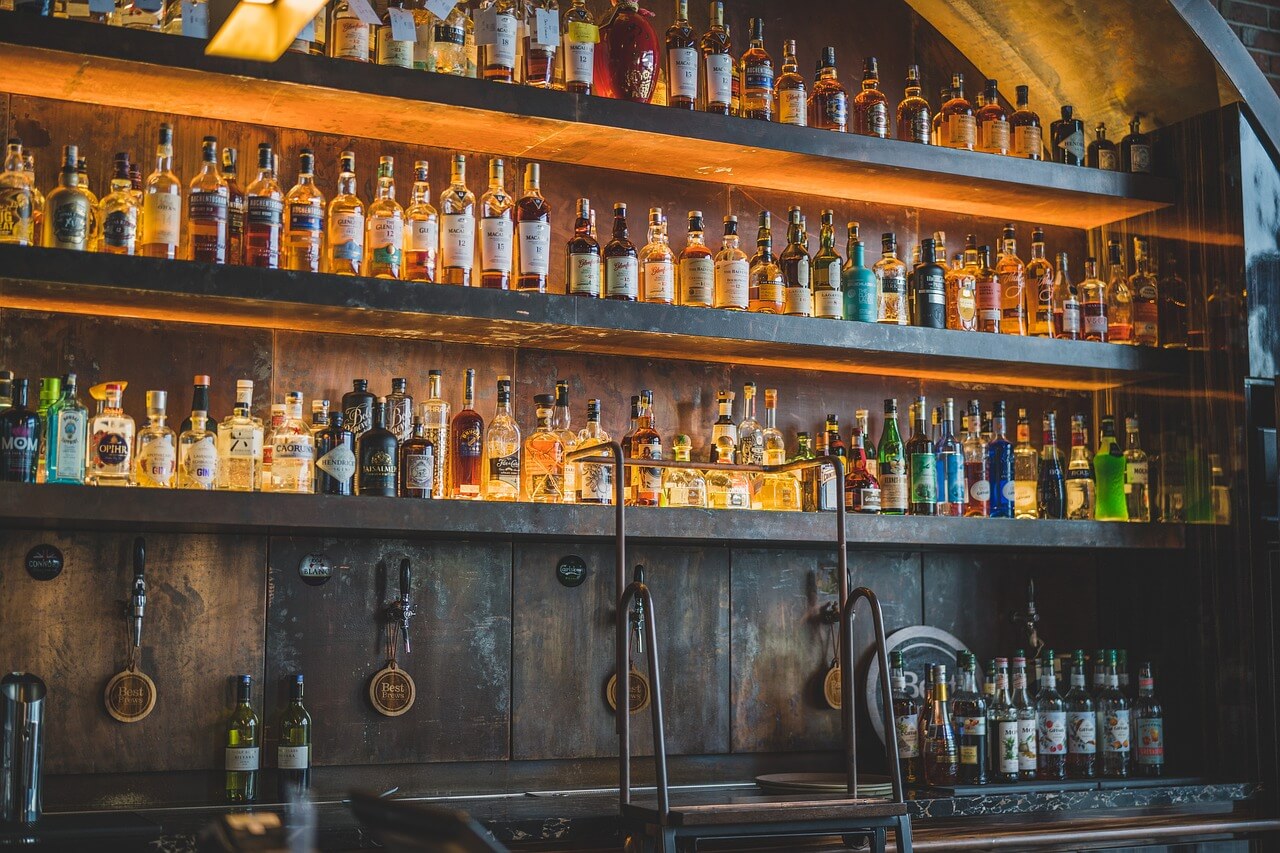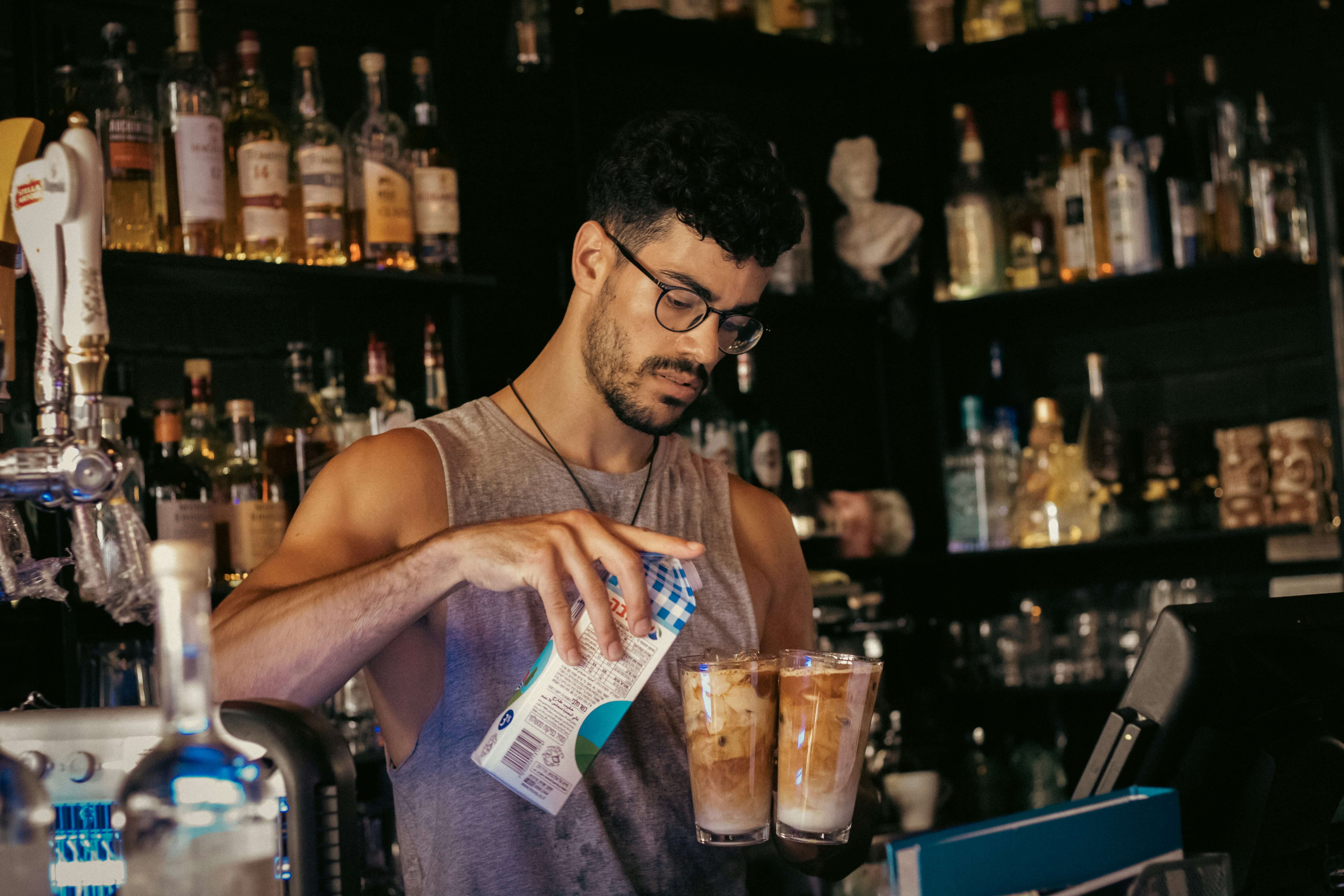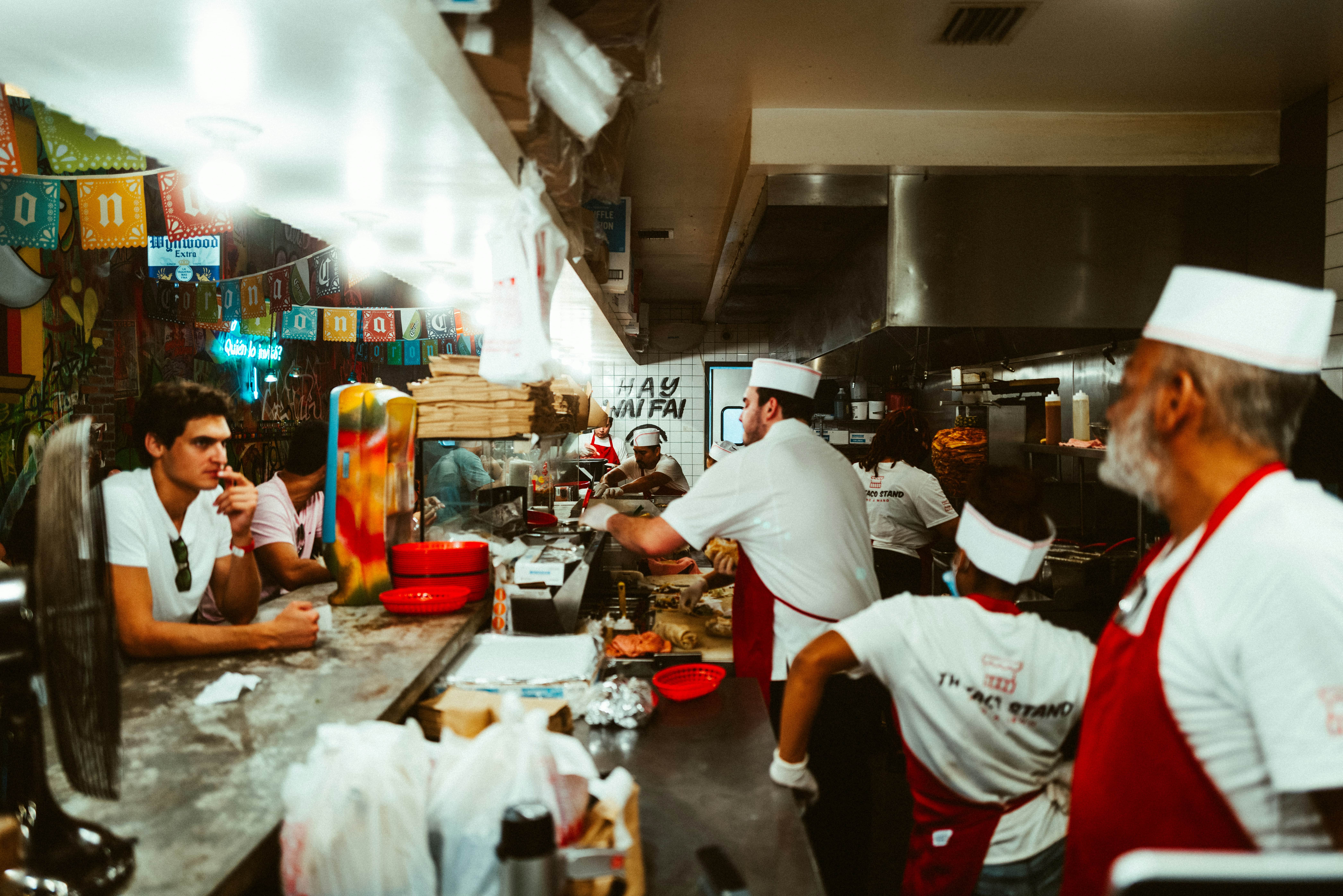Guide to the personal alcohol licence application process
A personal alcohol licence allows you to sell or authorise alcohol sales. To get one, complete training, pass a DBS check, and apply to your council.
For enterprises looking to expand their restaurant, cafe, or bar to offer more flexible services – like transforming a cosy cafe into a lively evening bar – a personal alcohol licence is a must.
Whether the goal is to offer evening cocktails alongside a daytime brunch menu or to provide a broader range of beverages during special events, having this licence paves the way for a smooth and hassle-free transition to exciting new offerings.
In this guide, we’ll cover:
- What is a personal alcohol licence?
- Personal alcohol licence vs premises licence vs temporary events notice
- Who needs a personal alcohol licence?
- The legal framework
- Roles and responsibilities of a DPS
- How to apply for a personal alcohol licence
- Costs and fees
- Maintaining and renewing a personal alcohol licence
- FAQs
- How Dojo can help
Licence to serve: What is a personal alcohol licence?
A personal alcohol licence is a legal requirement for anyone involved in the regular sale of alcohol as part of their business operations. This isn't just limited to business owners; any individual responsible for managing alcohol sales in a licensed venue will need to hold a personal alcohol licence.
Personal alcohol licence vs premises licence vs temporary events notice
A premises licence allows a specific location to sell alcohol, while a temporary events notice (TEN) is for one-off events only. But, for either a premises licence or a TEN to be valid, there needs to be a person with a personal alcohol licence overseeing the sale of alcohol to meet the legal requirements.
Rule of thumb: a personal licence is tied to the individual, ensuring that alcohol is sold responsibly and in line with the law, no matter the venue or event.
Essential for growth: Who needs a personal alcohol licence?
Alcohol licences aren’t just reserved for large-scale bar owners or nightclub managers.
Anyone planning to hold more than five temporary events a year where alcohol is sold, or those looking to operate during both day and evening hours with varied services, will need to apply for a personal alcohol licence.
Consider conducting market research to help determine whether expanding service hours or offering alcohol aligns with customer needs and attracts more customers.
Nailing the legalities: The legal framework
The legal framework for personal alcohol licences in the UK, including personal licences in Scotland, are governed by the Licensing Act 2003.
This act outlines the requirements for obtaining an alcohol personal licence and ensures that alcohol is sold responsibly. It also makes sure that licence holders are aware of their legal obligations, such as preventing underage sales and maintaining public safety.
To obtain the licence, applicants must:
- be over 18
- pass a criminal record check
- complete an accredited personal alcohol licence course online or in person (more on this below).
Taking charge: Roles and responsibilities of a DPS
Holding a personal alcohol licence opens up important roles, like becoming a Designated Premises Supervisor (DPS). The DPS ensures alcohol sales at a venue are done by the book. This includes keeping an eye on compliance with licensing laws, helping staff understand their legal responsibilities, and ensuring all legal requirements are met.
The step-by-step guide: How to apply for a personal alcohol licence
1. Complete a recognised personal alcohol licence course
The first step to obtaining a personal alcohol licence in Scotland or elsewhere in the UK is to complete a Level 2 Award for Personal Licence Holders (APLH) course, which covers the following:
- An overview of the four main goals outlined in the Licensing Act 2003:
- preventing crime and disorder
- ensuring public safety
- minimising public nuisance
- protecting children from harm.
- Guidance on the duties of a personal licence holder, including managing licensed premises and ensuring compliance with legal requirements.
- Basic knowledge about alcohol, its impact on the body, public health considerations, and how to promote responsible drinking.
Personal alcohol licence course format
- Duration: The APLH course typically takes one day to complete, making it a relatively short but intensive learning experience.
- Delivery: The personal alcohol licence course is available both online and in person and offers flexibility to suit different learning preferences. In-person courses are usually conducted in a classroom setting, while online courses may involve interactive modules, videos, and quizzes.
After finishing the personal alcohol licence course, applicants will need to pass a multiple-choice personal alcohol licence test.
This exam typically consists of 40 personal alcohol licence test questions covering topics related to licensing laws, the responsibilities of a licence holder, and the procedures for managing licensed premises.
2. Find a training provider
Accredited training providers offer the personal alcohol licence course online or in person. These providers can be found through local council portals or private organisations specialising in hospitality training.
Here are a few examples of council portals to explore:
- Manchester City Council: Lists approved providers and upcoming courses.
- Birmingham City Council: Provides guidance on the process and lists approved trainers
- Westminster City Council: Offers details on the course and accredited providers in the area.
3. Pass a DBS check
To obtain an alcohol personal licence, a Disclosure and Barring Service (DBS) check is needed as part of the personal alcohol licence check – this is to ensure there's nothing in the applicant’s background that would prevent them from holding a licence. The process is straightforward: simply apply for a basic DBS check online through the government’s official website or an authorised third party. This will take a few weeks, after which the certificate will be sent directly to the applicant.
4. Submit the application
Once the training is complete and the DBS certificate is obtained, the next step is to submit the personal alcohol licence application to the local council. The application form can be downloaded from the council’s website. Along with the form, the applicant will need to provide:
- the original DBS certificate (dated within the last 28 days)
- the APLH course certificate
- two passport-sized photos, one of which must be endorsed as a true likeness by a professional (e.g. a solicitor or a notary)
- the application fee, typically around £37.
The local council will review the application and, if approved, issue the personal alcohol licence. This process usually takes a few weeks.
The financials: Costs and fees
Application fees
How much does a personal alcohol licence cost in the UK?
- Training course fees: Whether taking a personal alcohol licence course online or in person, the APLH course – which includes the personal alcohol licence test – typically costs between £120 and £200.
- DBS check: A basic DBS check usually costs around £18.
- Application fee: The fee for submitting the personal alcohol licence application to the local council is approximately £37.
Ongoing costs
If a licence is lost or damaged, a replacement fee of around £10 to £25 might apply.
In addition to the costs associated with obtaining a personal alcohol licence, consider other potential revenue streams like implementing a corkage fee.
No expiry here: Maintaining and renewing a licence
Licence validity
Personal alcohol licences in the UK don’t have an expiry date – they’re valid indefinitely unless surrendered or revoked due to legal reasons.
A licence can be revoked if the holder is convicted of a relevant offence, like a serious crime involving dishonesty, violence, or alcohol-related issues. If the licence holder fails to comply with the licence terms – such as allowing underage sales or not upholding the licensing objectives – the local licensing authority can also revoke the licence.
Renewing or updating details
If personal information, such as name or address changes after applying for a personal alcohol licence, it’s important to update the licence with the local council, as part of a routine personal alcohol licence check. This process usually involves submitting a form and paying a small fee.
When a licence holder moves to another venue, their alcohol personal licence remains valid and can be transferred or “ported” to the new location. However, the new venue will need its own premises licence, and the licence holder might need to be named as the DPS for that location.
Since the personal licence is tied to the individual rather than the venue, it moves with the holder wherever they work.
How Dojo can help
Expanding your business to offer new services is an exciting step. Alongside securing personal alcohol licences for staff, it’s essential to have the right tools in place to support this growth.
That’s where we come in. With our card machines, accepting card payments is quick and easy, helping small businesses grow, and enterprises speed up operations across multiple locations, seamlessly.
Whether you’re just starting out or looking to grow, our blog is packed with tips and insights to help you every step of the way. Why not start with increasing table turnover rates and see our impact in action?


